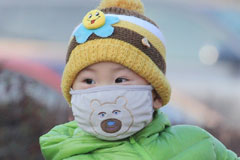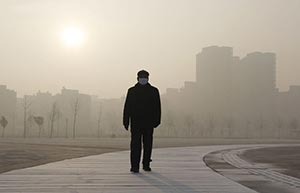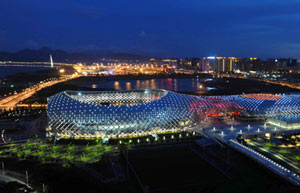Big cities struggle to meet pollution standards
By Zheng Xin (China Daily) Updated: 2014-06-05 04:08Even though most cities failed to meet the stricter air pollution standards, the government said it was confident of improving Beijing's air quality by 2017 — in line with a targeted PM2.5 level of 60 micrograms per cubic meter.
|
 |
|
 |
The government also vowed to enhance regional cooperation to fight air pollution.
Chai Fahe, vice-president of the Chinese Research Academy of Environmental Sciences, said he believed most major cities could reach the new standards by 2017 as long as the local governments are determined to carry out emission reduction activities.
Beijing, for example, can meet the targeted PM2.5 reduction as long as it sticks to scrapping old cars, suspending polluting industries and reducing coal burning, he said.
Chai also emphasized the importance of stricter air quality standards.
The tougher standards help the government pick up its pace in fighting pollution, he said.
The latest report showed that improving water quality nationwide also faced challenges.
According to the report, 27.8 percent of the 61 lakes and reservoirs being monitored had excessive nitrogen and phosphorus, while 59.6 percent reported poor or extremely poor water quality among the 4,778 monitoring spots for groundwater.
The soil quality of farmland was similarly worrying and regional degradation was serious, it said.
 Top 10 cities with worst smog in China |
 China's top 10 richest cities |
- Top 10 cities with best air quality in China
- Top 10 products minting most from smog
- China scraps high-pollution vehicles in air cleanup
- China inspects enforcement of air pollution law
- New Tianjin pollution plan calls for car-use restrictions
- Top environmental agency defines pollution haze
- Pollution casts pall over cities' livability
- China 'incredibly innovative' in many areas: Apple CEO
- City official: Guangzhou further committed to opening-up
- Jack Ma: Globalization backed by technology will cut inequality
- HNA confirms interest in ASEAN's infrastructure investment
- Comments on Xi's letter to 2017 Fortune Global Forum
- China to create more opportunities for the world: Xi
- US tax cuts impact on China two-sided: economists
- Chinese enterprises job fair to be held in Sri Lanka

















